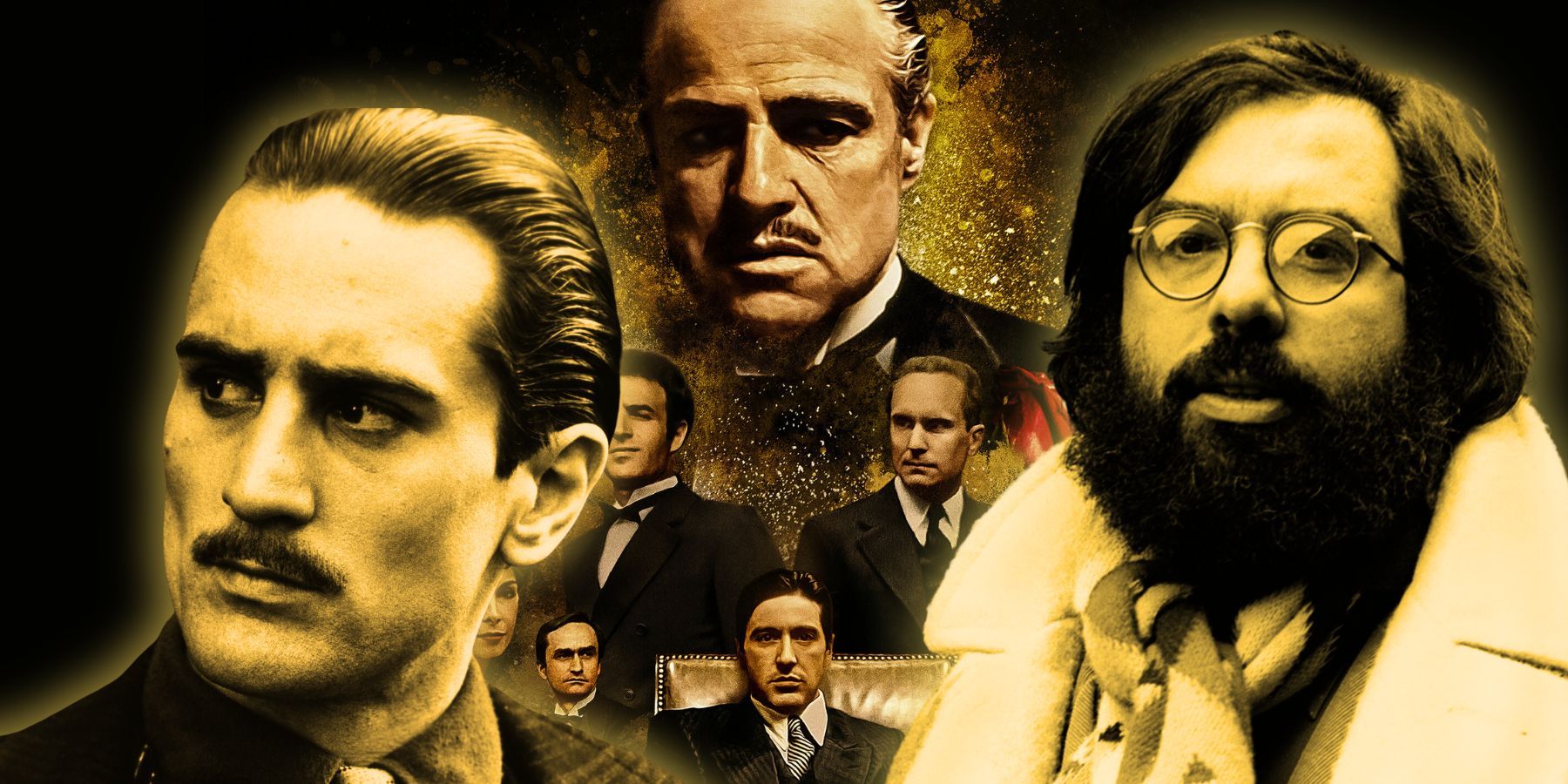
The Godfather Part 2: Why Francis Ford Coppola Produced It (But Not The First Movie)
The rare sequel that surpasses the original, The Godfather Part 2 sees director Francis Ford Coppola also taking on producing duties — something he didn’t do for the first movie. Based on Mario Puzo’s novel, the 1974 crime epic tells two stories: in the present, Michael Corleone (Al Pacino) navigates being the new Don, while in the past, Vito Corleone (Robert De Niro) travels from Sicily to New York and builds his empire. Despite the first film’s success, there were differing opinions behind the scenes when it came to continuing the Corleone family’s on-screen story.
 In the end, Paramount Pictures won out, and the sequel made history. While its box office draw wasn’t as significant as the first film, The Godfather Part 2 garnered a staggering 11 Academy Award nominations and became the first sequel to win a Best Picture Oscar. In addition to The Godfather Part 2, the original spawned a third, oft-maligned film, which didn’t release until 1990. Since the trilogy’s completion, Coppola has voiced varying stances on the films, but the fact remains that after 1972’s The Godfather, Coppola took on even more creative duties — whether he wanted to or not.
In the end, Paramount Pictures won out, and the sequel made history. While its box office draw wasn’t as significant as the first film, The Godfather Part 2 garnered a staggering 11 Academy Award nominations and became the first sequel to win a Best Picture Oscar. In addition to The Godfather Part 2, the original spawned a third, oft-maligned film, which didn’t release until 1990. Since the trilogy’s completion, Coppola has voiced varying stances on the films, but the fact remains that after 1972’s The Godfather, Coppola took on even more creative duties — whether he wanted to or not.Why Francis Ford Coppola Didn’t Produce The First Godfather
When Sergio Leone (Once Upon a Time in America) declined Paramount’s offer to direct The Godfather, the studio went down a list of filmmakers before eventually landing on Coppola, who’d mostly made B-movies and adult films before The Godfather. As a director, Coppola was trying to recoup from his poorly reviewed road drama The Rain People, while his production company, American Zoetrope, owed Warner Bros. nearly half a million dollars after the financial failure of George Lucas’ 1971 directorial debut THX 1138. Even so, Coppola didn’t want to direct The Godfather. “I thought it was sort of sleazy,” he recalled on The Howard Stern Show.
Eventually, Coppola relented and agreed to direct the adaptation. Alongside Puzo, Coppola penned the screenplay, insisting that The Godfather, first and foremost, should chronicle a family — both their rise and fall. Even after the writer-director signed on, the relationship between Coppola and Paramount was fraught. However, the filmmaker insisted on the period-piece setting and filming on location, choices that ballooned the budget significantly (via CBS News). Clearly, Coppola’s creative choices paid off. Between the eventual success of The Godfather and Lucas’ coming-of-age movie American Graffiti a year later, Coppola and Zoetrope reached new heights.